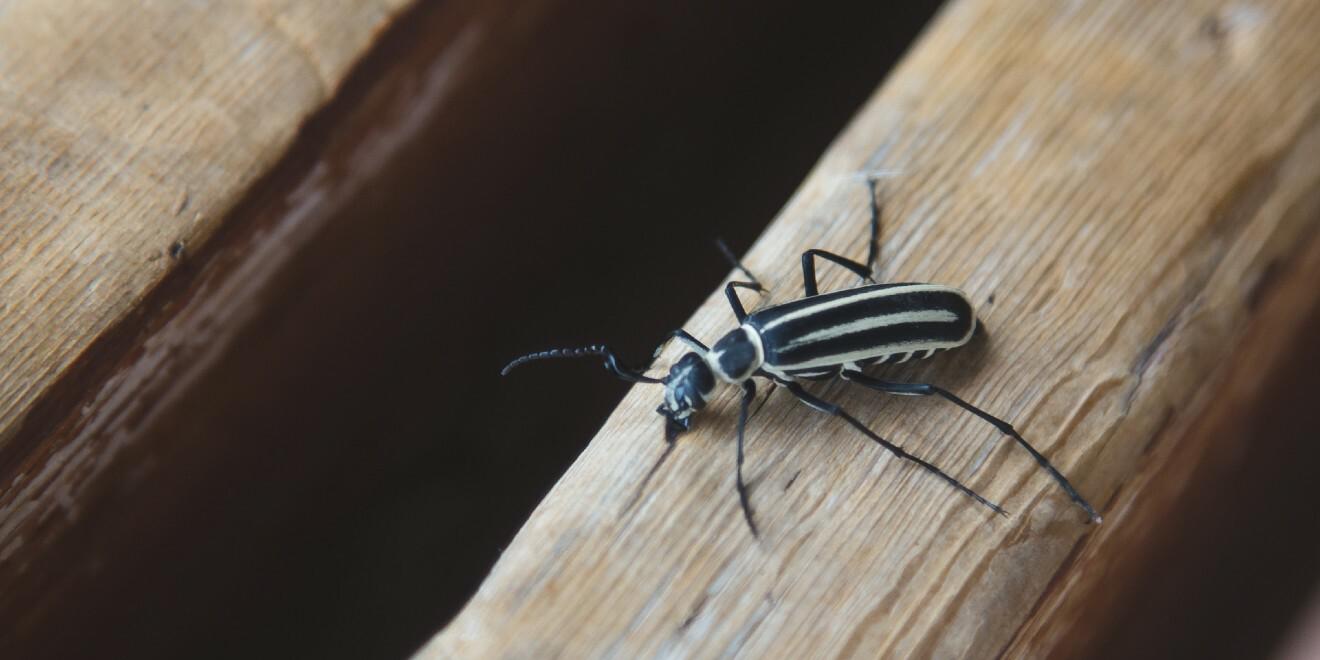What Are Blister Beetles: A Small Beetle with a Strong Toxin
Posted by Mosquito Squad
September 6, 2024

The blister beetle, also known as the Spanish fly, is a small beetle that gets its name from its primary defense mechanism: an odorless, colorless substance called cantharidin that burns the skin. These beetles excrete this toxin, which can cause irritation, rashes, and, true to the name, blisters.
How can you identify these pests? What will get rid of them? And are blister beetles dangerous?
You’ve got questions, and we’ve got answers!
First, Where are Blister Beetles Found?
Since the larvae feed on grasshopper eggs, blister beetles are found just about anywhere grasshoppers live. They’re especially prevalent in the Atlantic and Gulf coasts of the United States but most states have some variety. They’re not found, however, on the Pacific coast.
In your yard, blister beetles are commonly found on flowering plants, and in gardens consuming beets, potatoes, tomatoes, sunflowers, and legumes. As an agricultural concern, blister beetles often infest alfalfa hay and, when consumed by horses, cause mouth and internal burn injuries.
What Does a Blister Beetle Look Like?
Blister beetles are small, typically about 1/3 inch to 3/4 inch. Coloration varies and you may come across blister beetles that are spotted, striped, gray, or black, depending on where you live. They can be further identified by their leathery-looking wings and long antennae. The single most prevalent type of blister beetle in the US is the striped blister beetle (Epicauta occidentalis).
Are Blister Beetles Dangerous?
Yes and no. Blister beetles don’t pose a large danger upon contact (some minor pain and blistering when the insects are swatted or crushed) but can pose a greater threat if ingested.
Does a Blister Beetle Bite?
“Blister beetle bite” is a misnomer. Blister beetles excrete the toxic vesicant known as cantharidin, which causes painful irritation and blistering. The beetles do not use mandibles, fangs, or venom to defend themselves.
Physical Contact with a Blister Beetle
When a person or animal comes into physical contact with the beetle, getting cantharidin on them can cause a reaction that usually takes the form of a red blister or welt. The reaction isn’t life-threatening but can be a painful annoyance. Be sure to quickly wash the blister after contact to prevent cantharidin from contacting your eyes or mouth.
Ingesting a Blister Beetle
Blister beetles aren’t life-threatening to humans. They do present serious risks to pets and livestock; horses are especially susceptible. Even dead beetles can be a problem as their caustic toxin is still present. Symptoms of ingestion include a sore mouth and nausea. Seek medical care promptly if a person or pet has ingested a blister beetle.
If blister beetles are common on your property or spotted in feed, such as alfalfa, on your farm, be sure to take action to protect pets and livestock.
How to Get Rid of Blister Beetles—3 Tricks
There aren’t many ways to eliminate blister beetles, and they have very few natural predators or parasites. Let’s look at three options to consider:
- Use diatomaceous earth (DE) – DE is a natural, white powder mainly containing silica. These crystals irritate and dehydrate pests, killing them. Pour small amounts of DE on the ground in areas outside where blister beetles are present. DE may also be dusted onto plants or mixed in water and sprayed.
- Remove them manually – If you’ve got a small number of suspected blister beetles, you can remove them with rubber or plastic gloves. Cloth garden gloves won’t provide the protection you need. Brush the beetles into a small container with soapy water to kill them and prevent them from returning.
- Get professional treatment from Mosquito Squad – A professional pest service can provide targeted options for non-vegetable and boundary plants. Consider a natural pest treatment to naturally deter blister beetles or a barrier pest treatment to kill blister beetles on contact and continue to deter them for up to 21 days!
Mosquito Squad’s technicians have the knowledge and tools to identify and help remove these pests from your property!
Keep Your Family, Pets, and Livestock Safe
To keep everyone on your property safe from blister beetles, take proactive measures to manage the pest. At Mosquito Squad, our top priority is to tackle potentially dangerous pests. For help with blister beetles on your property, contact your local Squad today at (877) 332-2239 or request a quote online.
